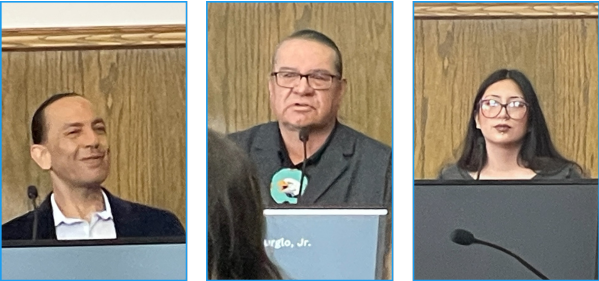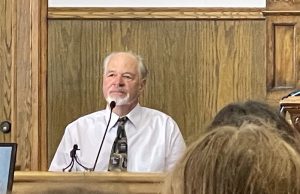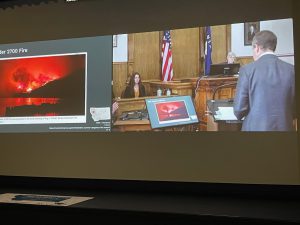GAFTG Founder Maya van Rossum is in Montana giving live coverage of the trial from her perspective as a national expert on constitutional environmental rights. Read her breakdown of the most poignant moments in the courtroom from the trial:
Day three continues with more compelling testimony. On this day, Grizzly Standing Bear also known as Michael Durglo Jr. head of the Confederated Salish and Kootenai Tribes’ Tribal Historic Department; Shane Doyle, father of youth plaintiffs Rubi and Lillian, members of the Crow Nation; and Sariel Sandoval one of the youth plaintiffs who is a member of the Confederated Salish and Kootenai tribe shared stories about their lives, the value of nature in their culture and lives, and the importance of the timing of events in nature for tribal events, the gathering of berries and other foods they eat over the course of the year, and their relationships with each other, their ancestors and the natural world.
Michael, Shane, and Sariel, explained the importance of the oral tradition in Native American culture and life. That these stories shared by the elders, and handed down from their ancestors, taught the people about natural medicines, and when, where and how they can find and gather them. The climate crisis is changing the timing, the location and even the availability of these medicines, as well as traditional foods like chokecherry that is a deeply ingrained part of their lives. And so what they learned through story from their ancestors is now different.

Michael talked about how many parts of their community are named for their natural qualities. For example a stream that is named after the Bull Trout that live there. He asks, what happens to the stream’s name if there are no longer Bull Trout?
Just as Dr. Fagre asked, how will people feel about Glacier National Park if there are no longer glaciers there?

Youth plaintiffs Taleah and Georgi contributed stories of how the climate crisis was impacting their ability to enjoy nature and their lives. Georgi, and competitive skier described how the wildfires were impacting her ability to train some days and that skiers from the east would not think to come to the wilds of Montana to train because of the impact of wildfire smoke on their health and the ability to be outside to train.
Dr. Jack Stanford, director of the Flathead Lake Biological Station spent a couple of hours providing an amazing education on streams, rivers, lakes and groundwater, and how the climate crisis was impacting water availability, stream ecosystems and aquatic life, and very poignantly stated: “We can’t get through life without a reliable source of water.” We need it not just for drinking, but for all aspects of life and our ecosystems. Dr. Stanford told some pretty jarring facts about how warming temperatures were creating the conditions for serious algal blooms in Montana waterways. As Dr. Stanford described it: “These algal blooms are nasty critters that produce dangerous toxins.” There are stories of cattle, he recounted, dying in their tracks after drinking water loaded with high nutrients and algal blooms. And he talked of fish die offs and river closures in the Madison River, an iconic trout stream in Montana that is getting warmer fast: 1.7 degrees centigrade (2 degrees Fahrenheit) every decade! 
Being in the court room to hear this testimony live is deeply impactful. But it is also very uncomfortable with the court room benches quickly inflicting back pain that keeps you sitting upright. Late in the day, after talking to a reporter during the afternoon break, the case was already back and underway and so, as requested by the court clerk, I didn’t want to enter the room and create even a minor distraction for the judge. So I went across the road where Our Children’s Trust had set up a community viewing center on a large movie screen – it was definitely more comfortable, but also gave a different perspective on the court room that was interesting. The graphics that were being shown to the judge during testimony were easier to see in this format. It will be difficult to decide which location I would prefer to be at on day 4, but I think I will brave the enduring back pain in order to be in the actual room to witness this historic event.
